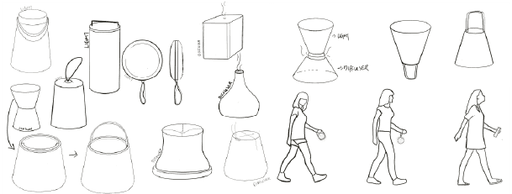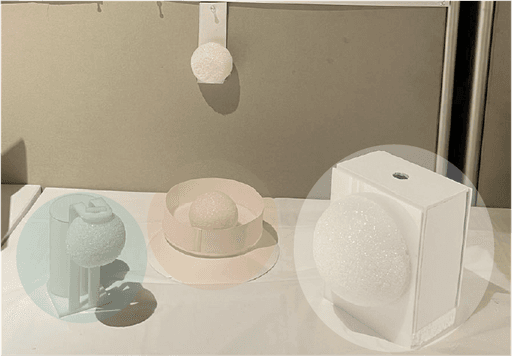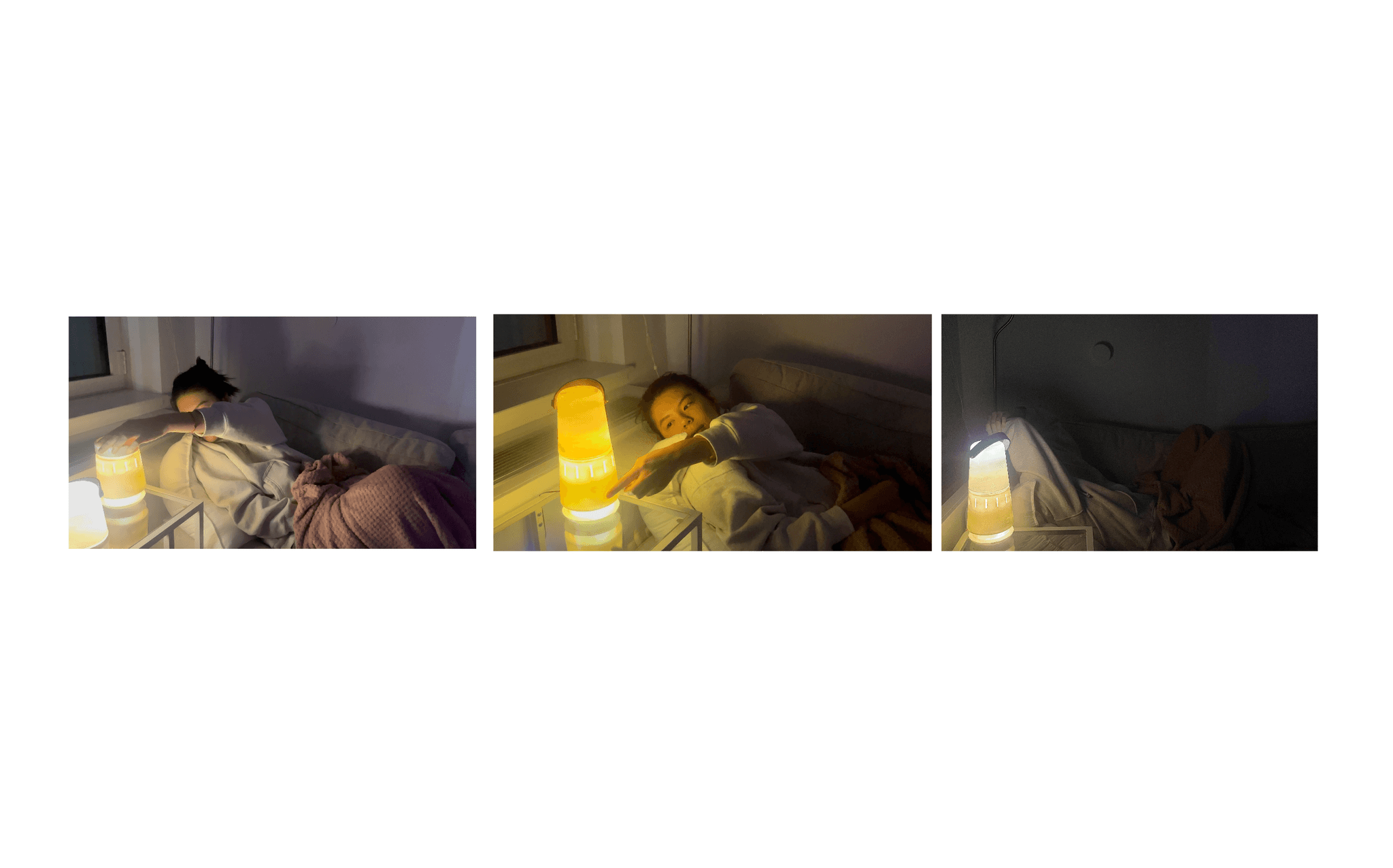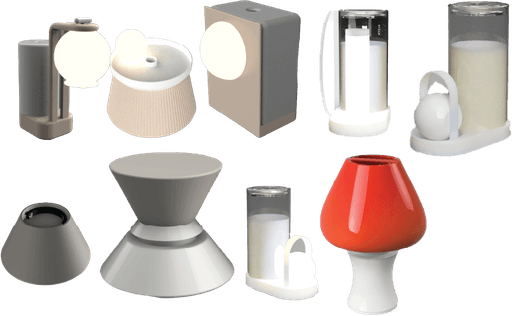2023
Cozy Lumen
Cozy Lumen is a sleep system designed to enhance sleep experience and improve the quality of sleep.
What I did
User Research
Industrial Design
UI/UX Design
Timeline
Awards
3 Months
Gold 2025 Muse Design Award
Sliver 2025 Muse Design Award
Sliver 2025 New York Product Design Award

The Problem
Sleep disorder refers to a group of conditions that affect the ability to sleep well on a regular basis, leading to problems with falling asleep, staying asleep, or feeling rested upon waking. It can be caused by a variety of factors such as medical conditions, lifestyle habits, and environmental factors
What are the potential
consequences of
sleep disorders?
Sleep disorders impair memory, decision-making, and productivity, leading to accidents and reduced well-being. Addressing sleep issues is essential for long-term health and quality of life.
Interview
In conducting a sleep quality and sleep disorder survey with 178 participants, I gained valuable insights into people's needs and identified specific groups that require assistance.
50% of people choose to exercise or change circadian rhythm when they have trouble falling asleep.
58% of people report waking up in the middle of the night.
60% people admit that they occasionally have difficulty falling asleep, and people report that their sleep quality is fair.
Design Goals
Design a calming, user-friendly sleep aid that enhances the overall sleep experience through intuitive interaction and thoughtful integration into users' nightly routines
Market Analysis
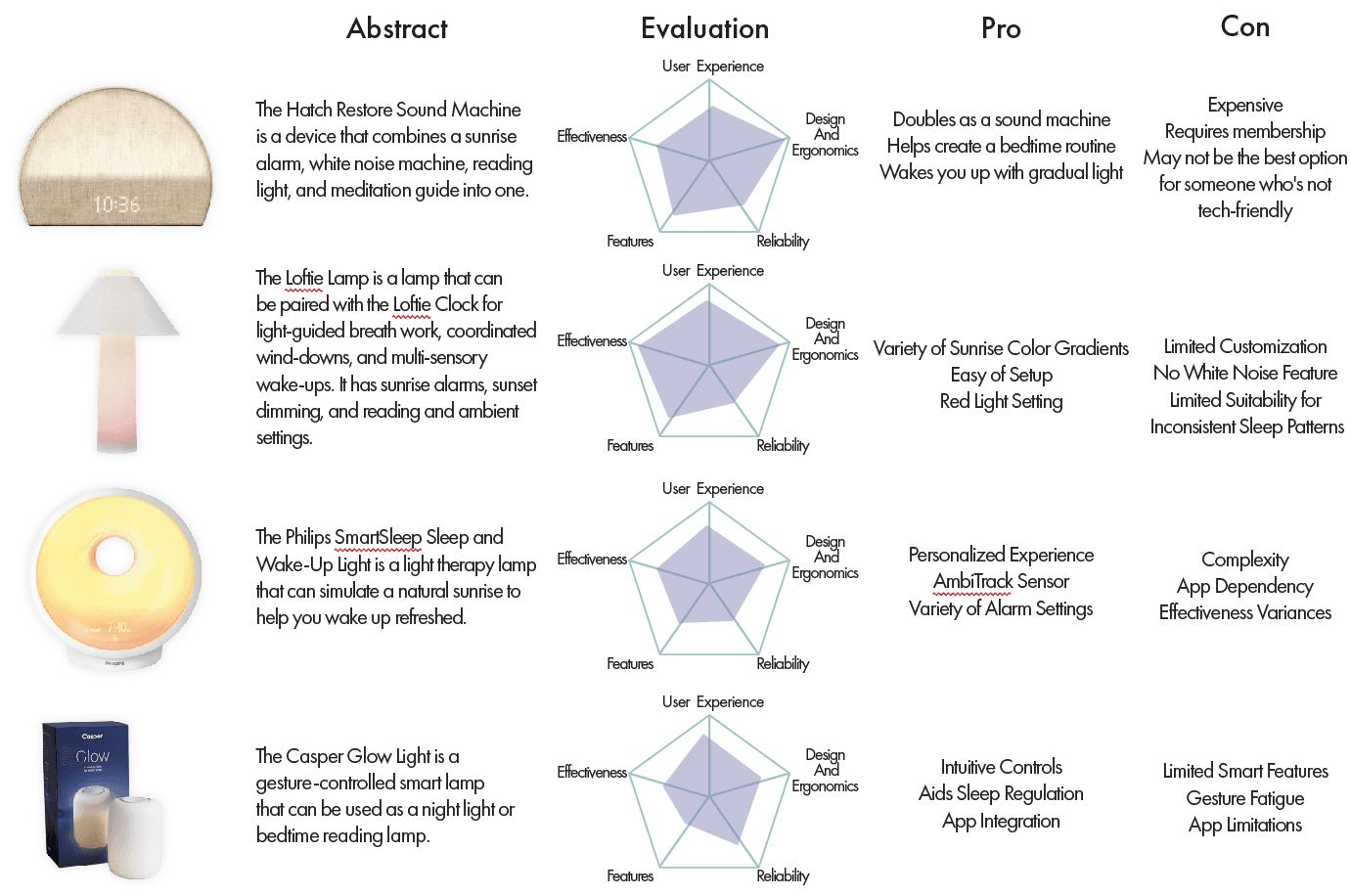
I found out…
An opportunity to connect sleep tracking data directly to physical devices, creating a more personalized and responsive sleep experience.
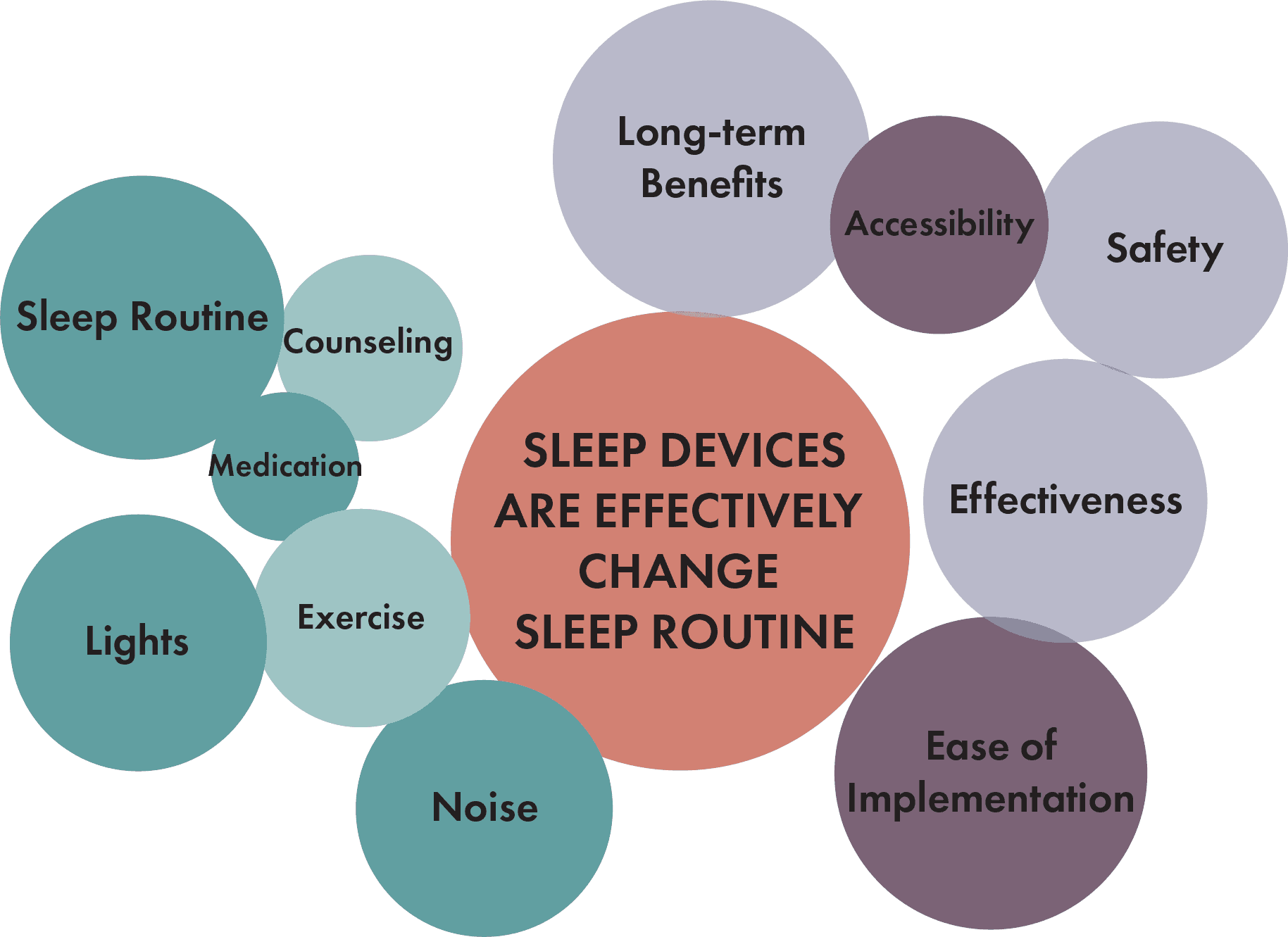
Design Approaches for the methods
To address common sleep issues like insomnia, our design focuses on light, sound, and aromatherapy—three proven, non-invasive methods that support better sleep.
Sound
Creates a calming environment for better rest
Includes white noise and soothing soundscapes
Light
Reduces blue light exposure
Helps regulate circadian rhythms
Supports natural sleep-wake cycles
Aroma
Complements other sensory elements in sleep routines
A popular complementary therapy for sleep disorders
Design Decisions for the forms
Portable Sleep Aids
Compact, hand-held designs offer safe and gentle lighting for users who wake at night, focusing on ergonomics and minimal disruption during movement.
Sunset Simulation Lighting
Lighting concepts mimic the natural dimming of sunset, helping users relax and transition into sleep by supporting their circadian rhythm.
What does the prototype
evaluation show?
After experimenting with various prototype forms, I've made a new discovery: combining a portable light with an aroma diffuser to create an innovative form for the product.

What is this App?
The Cozy Lumen app offers seamless smart home integration, allowing users to control their sleep environment via voice commands, mobile app, or gesture recognition. It provides customizable sleep settings, including white noise, good-night lights, and real-time sleep insights.




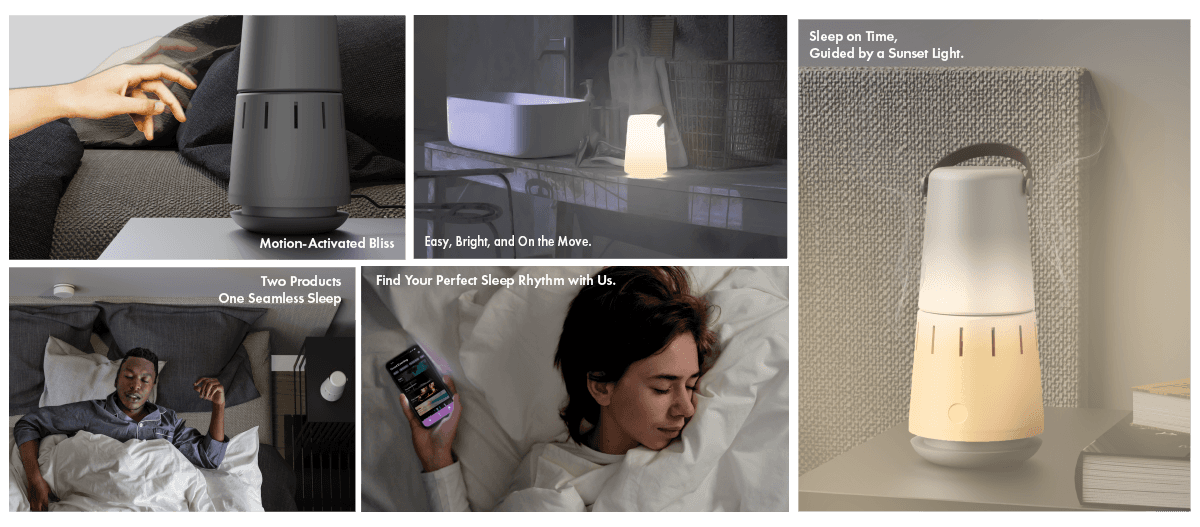
Copyright 2024 by Qianmu Yang

